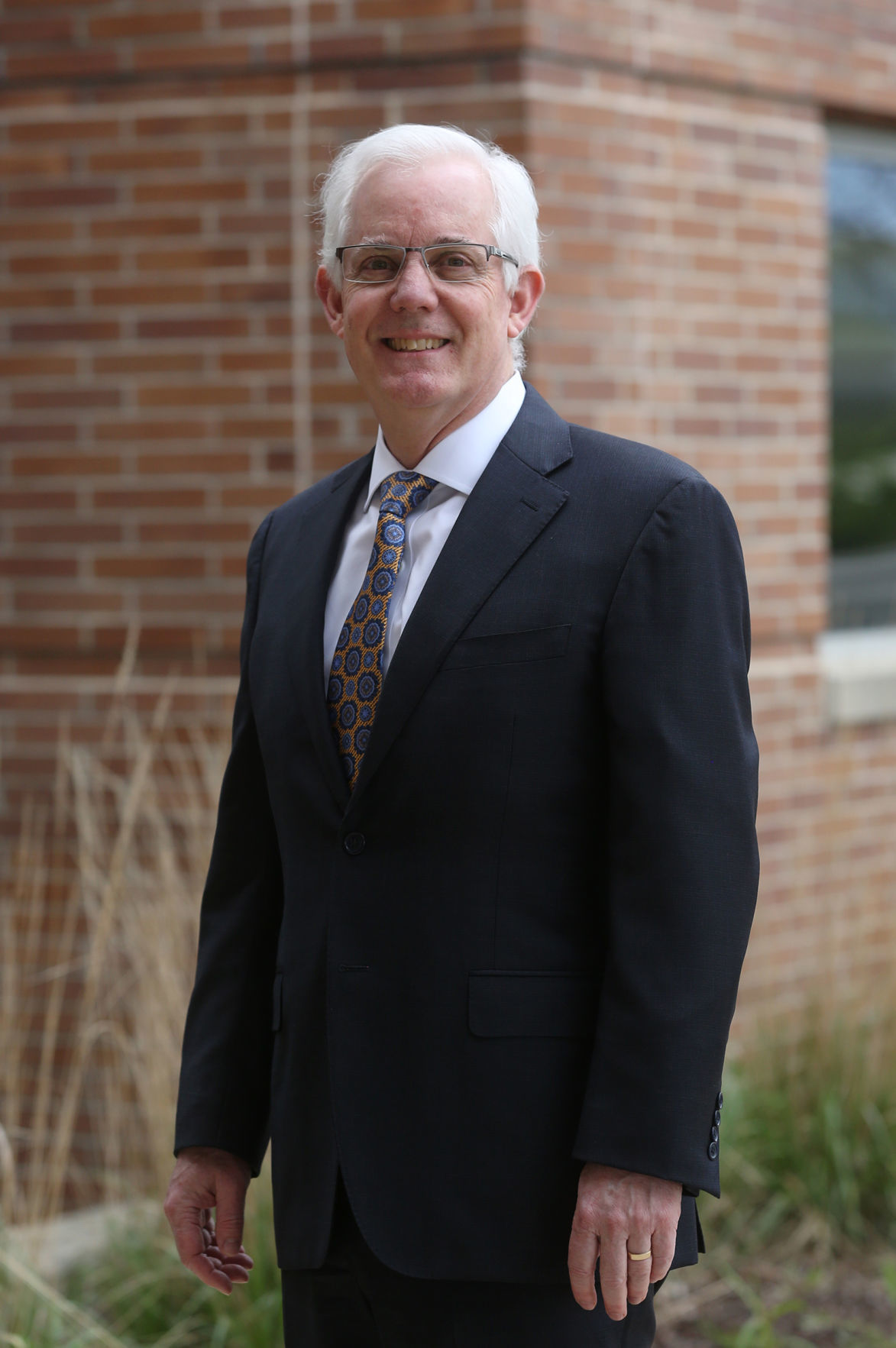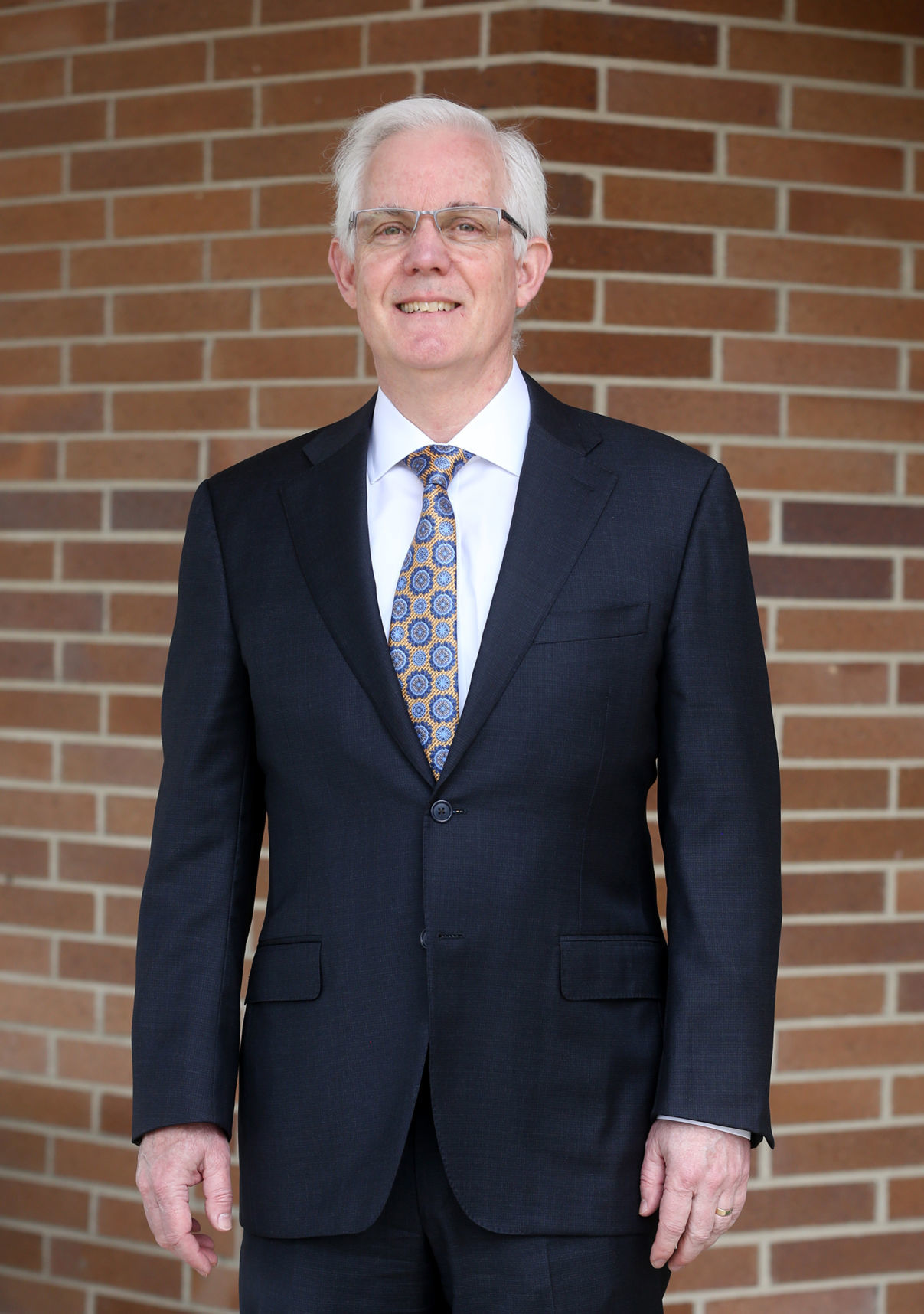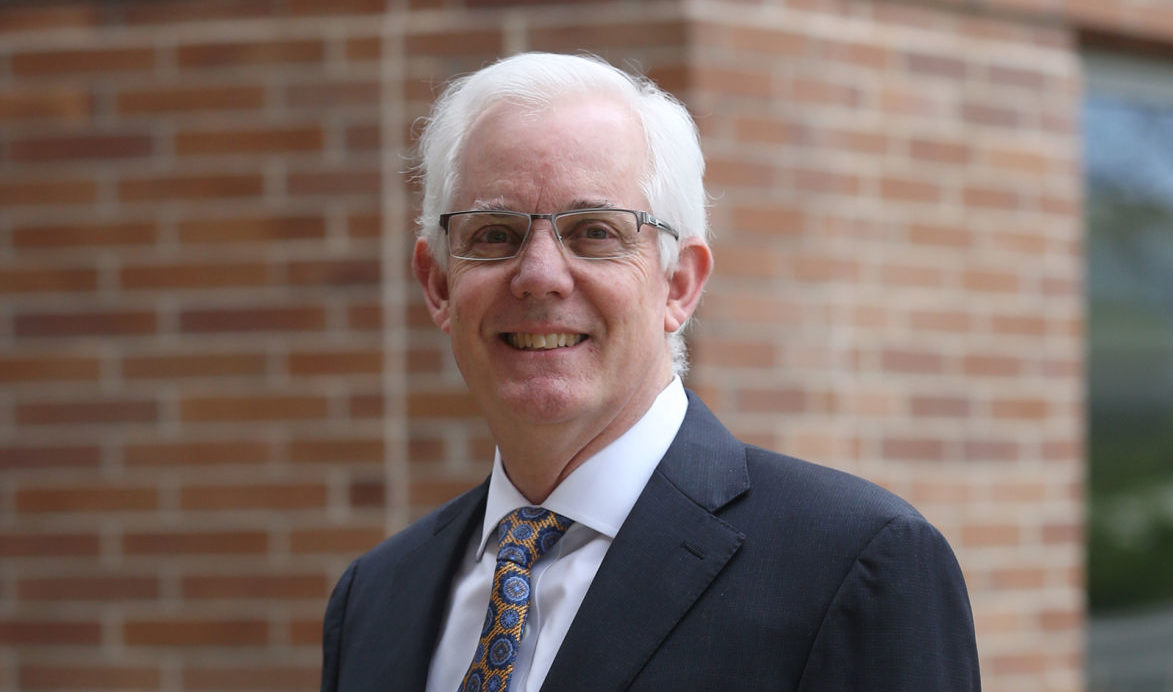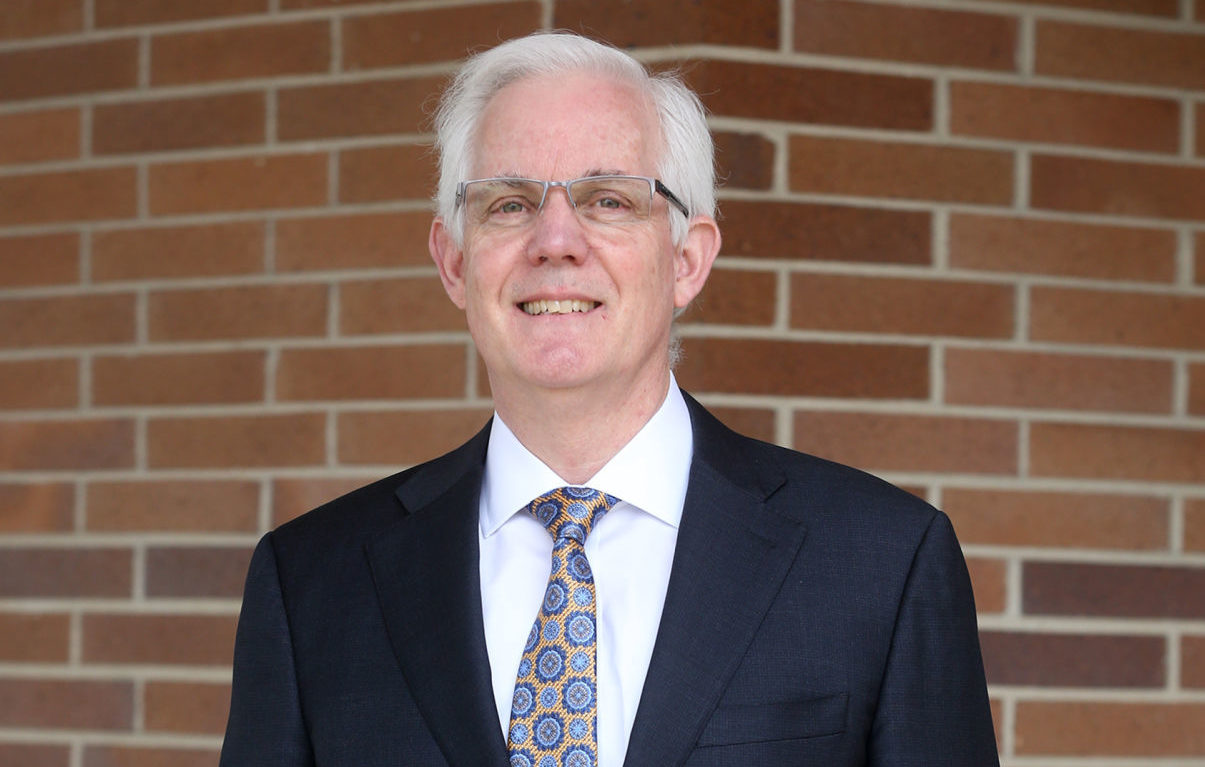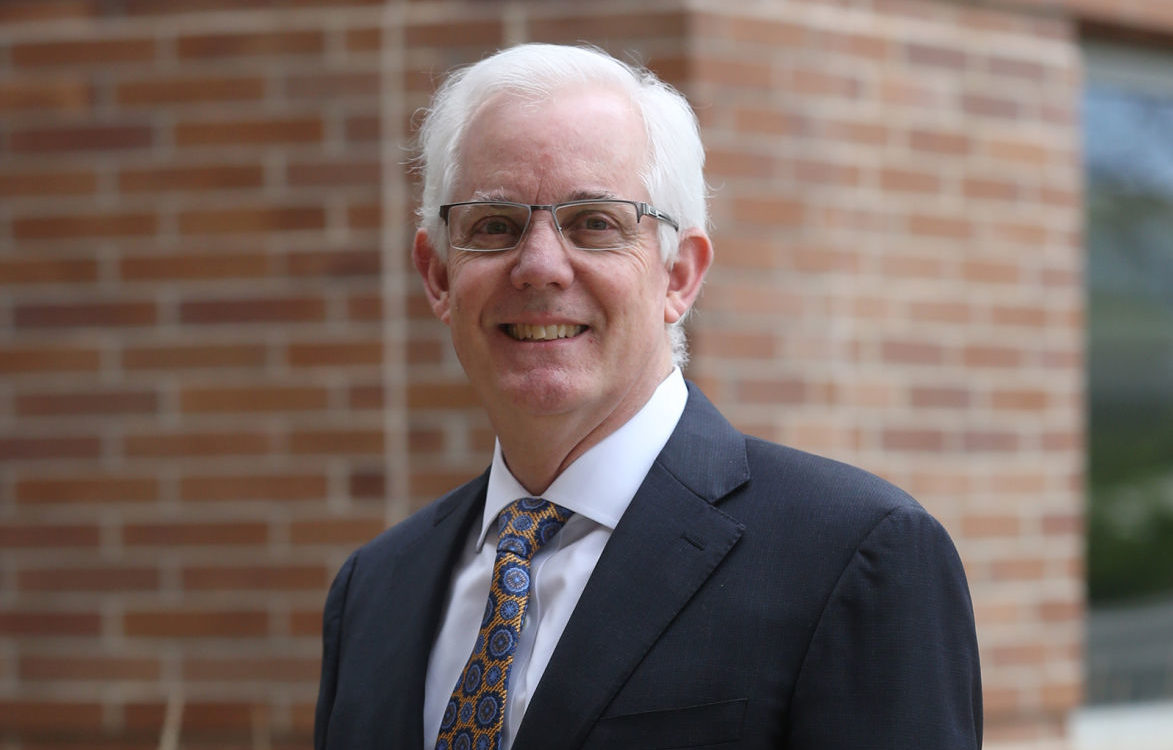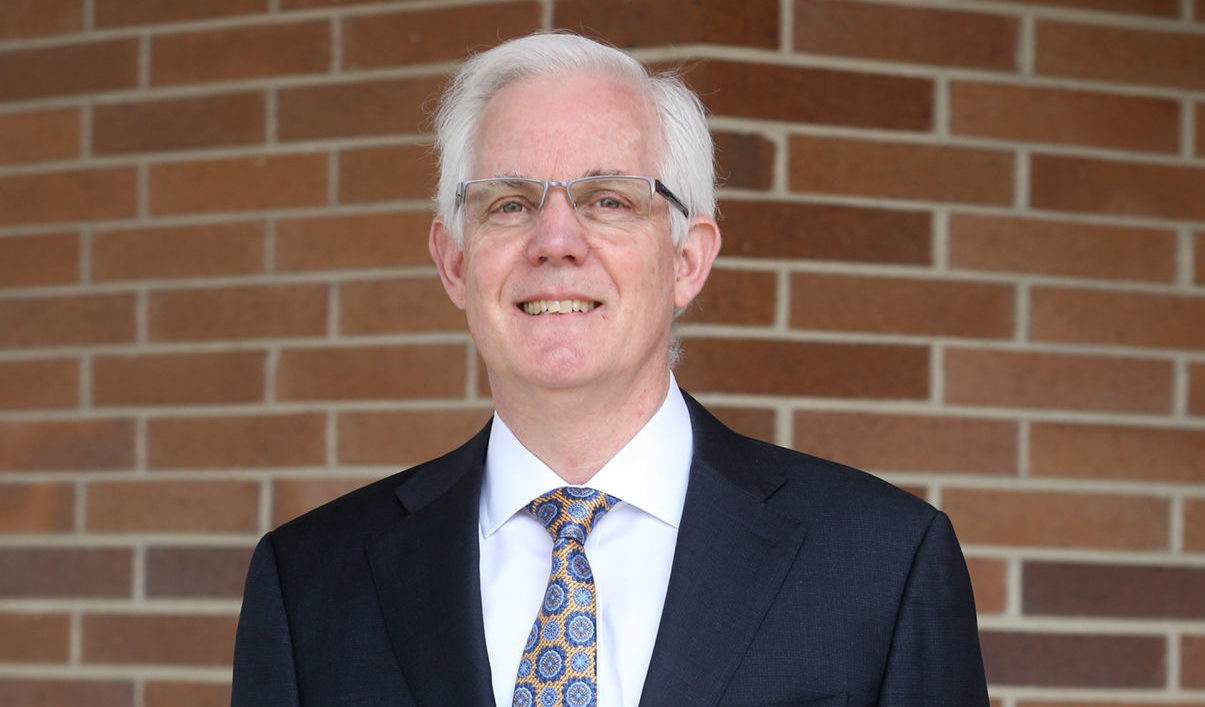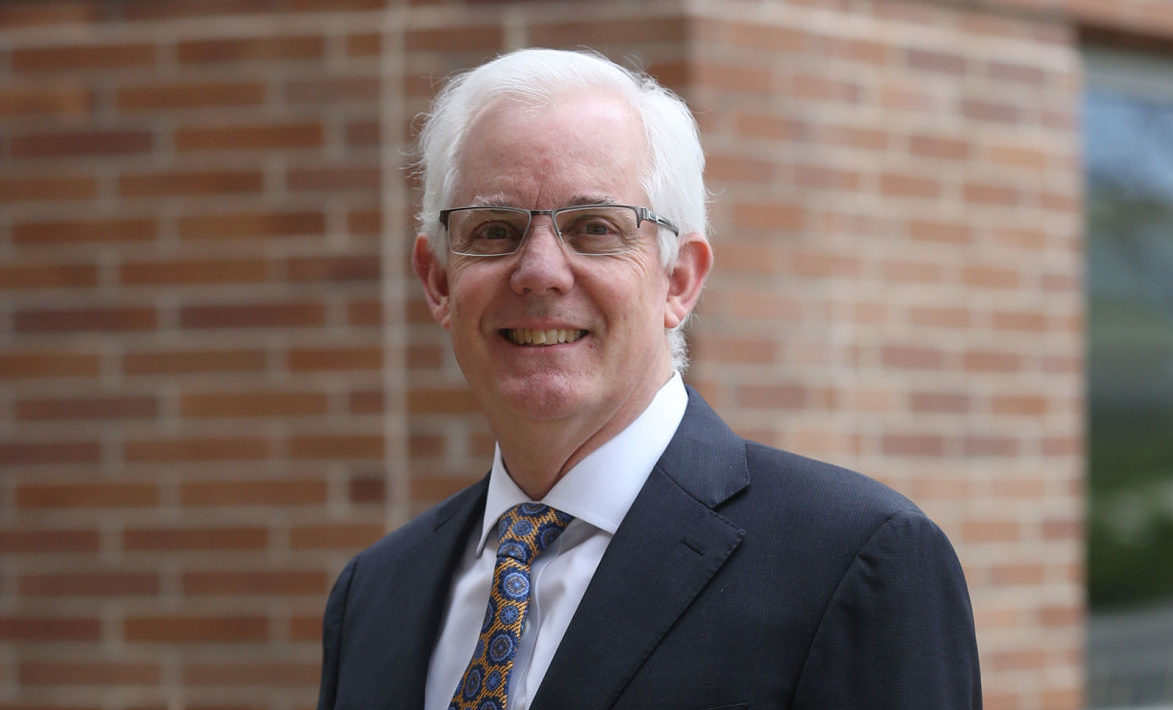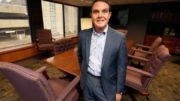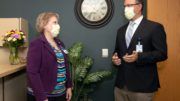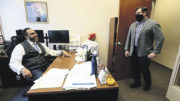John Tallent is the Chief Executive Officer of Medical Associates Clinic, P.C.
After graduating from Brigham Young University with a degree in psychology, and serving a two-year mission in Japan for the Church of Jesus Christ of Latter-day Saints, Tallent married his wife, Tracy, and ended up working long hours as an assistant manager in a Denny’s restaurant in a little town in Washington.
Eighteen months later, he returned to school and earned a Master of Heath Administration degree from the Marriott School of Management at Brigham Young University and began his health care career in 1986. He spent 12 years with FHP Inc., a fortune 500 staff model HMO, in Utah, Arizona and New Mexico in a number of management roles, including president of FHP of New Mexico.
As a result of the sale of FHP, Tallent considered an offer to interview for the Medical Associates Clinic & Health Plans CEO position. He and his family arrived in Dubuque on June 30, 1998.
They are the proud parents of two boys and two girls. They have identical twin grandsons who reside in Reston, Va., and two grandsons who live in Salt Lake City, Utah, the most recent, born six weeks ago.
His main interests include music, theater, photography, golf, movie watching, cooking and travel.
His community involvement includes: Hills & Dales, board member/president; Hills & Dales Foundation, board member; Dubuque Mercy Health Foundation, board member; Dubuque Area Chamber of Commerce, board member/chairman; Greater Dubuque Development Corp. board member/executive committee; American Trust Savings Bank, board member/audit committee chair; Dubuque Bank & Trust, board member; United Way Dubuque, board of trustees and professional division chair.
Can you name a person who has had a tremendous impact on you as a leader?
Elden Mitchell who was the Regional President of FHP Utah (an HMO) probably had the most impact on me. I remember one time, within the first few years of my employment, when I brought a handful of purchase authorizations to his office for signature. He signed the first few then stopped after reading the next one and asked me why I decided to waste his time with this purchase authorization. Puzzled, I stated that I needed his signature. Elden then schooled me on the fact that the purchase amount was within my authorization level and that he had full confidence in my ability to make the right decision. This was a very small thing, but Elden deliberately made a big point of it to teach me to take the authority I had been granted seriously and to convey the trust he had in me.
In addition to allowing his team members to act within their scope of authority and in trusting them to make the right decisions, Elden also consistently conveyed through his actions his respect for each individual regardless of position, seniority, etc., so that each employee knew that he personally cared for them and that the organization cared for them.
What are the most important decisions you make as a leader of your organization? I believe the leader of the organization has the responsibility to ensure that the “right” ethical decisions are made. Although it would seem otherwise, there are times when the “right” ethical decision is not always the easiest to make. However, these are always the most important decisions to get “right,” particularly during the long term.
Which is more important to your organization – mission, core values or vision? I believe that vision is most important as the vision establishes direction for the organization and provides focus and motivation towards the long-term goal. I am sure everyone is familiar with the reference to “Alice in Wonderland” when Alice asks the cat which way to go and the cat responds that it depends on where you want to go, or with Steven Covey’s principle of Begin with the End in Mind. I believe it is incredibly important to have a vision of where one wants to go.
What is one characteristic that you believe every leader should possess? If I had to choose one characteristic that I think is important for any leader to possess, I believe I would have to choose humility. I am not saying that I am anywhere near as humble as I should be, but I do believe it is very difficult for people to believe that their leader cares for them if they do not perceive at least some sense of humility within that leader. In my experience, it is very difficult to support someone who does not exhibit some level of humility.
What advice do you have for future leaders? Remember that no one can be a leader without followers and that successful leaders tend to have followers that want to follow them. Followers are willing to follow a leader if they perceive it is a safe and reasonable proposition to do so or if they believe the leader to be acting in their best interest. Followers are willing to sacrifice if they believe the leader will protect them and if the direction is right.
Focus on the big picture, realize that your team are experts in their areas of work and seek out their advice.
Focus on how you can create value for others. Don’t be afraid to take your time.
What lessons can leaders take away from the current pandemic? People are resilient and can accomplish and survive more than they sometimes believe they can. It is a leader’s responsibility to help people believe what is possible.


